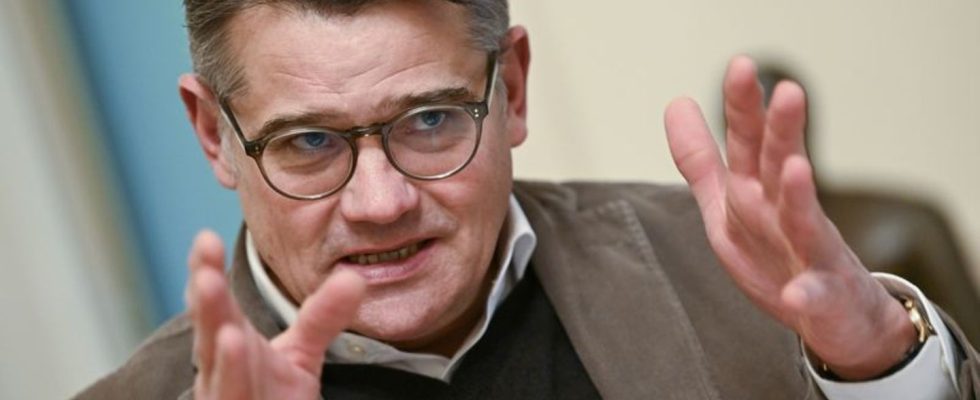migration
Country boss demands real results from meetings with Scholz
Wants to limit irregular migration”: Boris Rhein. Photo
© Arne Dedert/dpa
On Wednesday, the Prime Minister will discuss migration policy with the Federal Chancellor. The acting conference leader demands clear information from Scholz.
Before the top meeting of the federal and state governments on migration policy on Wednesday, the chairman of the Prime Minister’s Conference, Boris Rhein (CDU), is pushing for concrete results. “We have to make every adjustment to the irregular situation “To limit migration,” the Hessian Prime Minister told “Bild am Sonntag”.
He demands clarity from Chancellor Olaf Scholz (SPD) about “when additional states with low recognition rates will be designated as safe countries of origin and what the status of the additional repatriation agreements is.”
At their meeting on Wednesday, the heads of government of the federal states want to discuss migration policy first among themselves and then with Scholz. Some of their communities are suffering from an overload of asylum seekers.
The Bavarian Prime Minister and CSU chairman Markus Söder called for “a real change of direction immediately”. According to his ideas, asylum seekers should only receive full social benefits after five years instead of three, and newly arriving refugees from Ukraine should only receive asylum seeker benefits instead of immediate citizenship benefits. Söder called for “central federal exit centers at airports” and a clearly defined upper limit for the admission of asylum seekers, which should be based on Germany’s ability to integrate.
What happens next with the payment card?
In a survey conducted by the opinion research institute Insa for the newspaper, 77 percent of the 1,002 respondents were in favor of the nationwide introduction of a payment card through which asylum seekers can receive their state benefits (against: 13 percent). All federal states are planning to enable their municipalities to introduce it or have already started doing so; 14 of the 16 states are proceeding together in the required procurement process.
The German Association of Cities called on the states to find common rules. Otherwise there is a risk of a patchwork quilt, said managing director Helmut Dedy to the editorial network Germany (RND/Saturday). He praised the fact that the traffic light coalition had created clarity under federal law at this point. “Nevertheless, almost all further detailed questions about the payment card are still open.” The states must ensure “that the payment card is introduced in all their municipalities under the same conditions as possible.” Dedy raised the question of whether the card should be valid for newly arrived asylum seekers or for those who have been living here for a long time, how much cash can be withdrawn and whether the card can only be used for certain goods.
The federal cabinet decided on Friday that the planned payment card would be secured by a federal law. The card is intended to prevent asylum seekers from transferring money to smugglers or to their family or friends abroad. The specific design is still unclear in many places. Bavaria and Mecklenburg-Western Pomerania are going their own way, but also want to introduce a payment card.
What’s still on the agenda
The topic at the federal/state meeting will also be the Growth Act, which is intended to promote the economy through tax relief and reductions in bureaucracy. The Bundestag passed it by a majority. However, the Union demands that the government not finance parts of the costs by reducing subsidies for agricultural diesel and abandon this project entirely. The mediation committee of the Bundestag and Bundesrat failed to find a compromise between all those involved.
The Prime Minister of Rhineland-Palatinate, Malu Dreyer (SPD), called on the Union states to agree in the Bundesrat. “We need tax improvements, which represent an urgently needed positive signal for companies in Germany in the current economic situation,” Dreyer told the German Press Agency.

